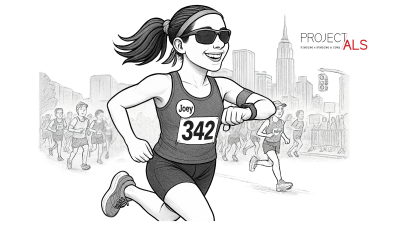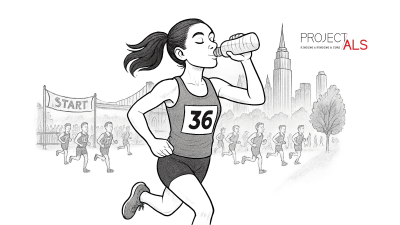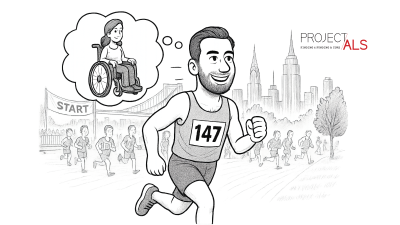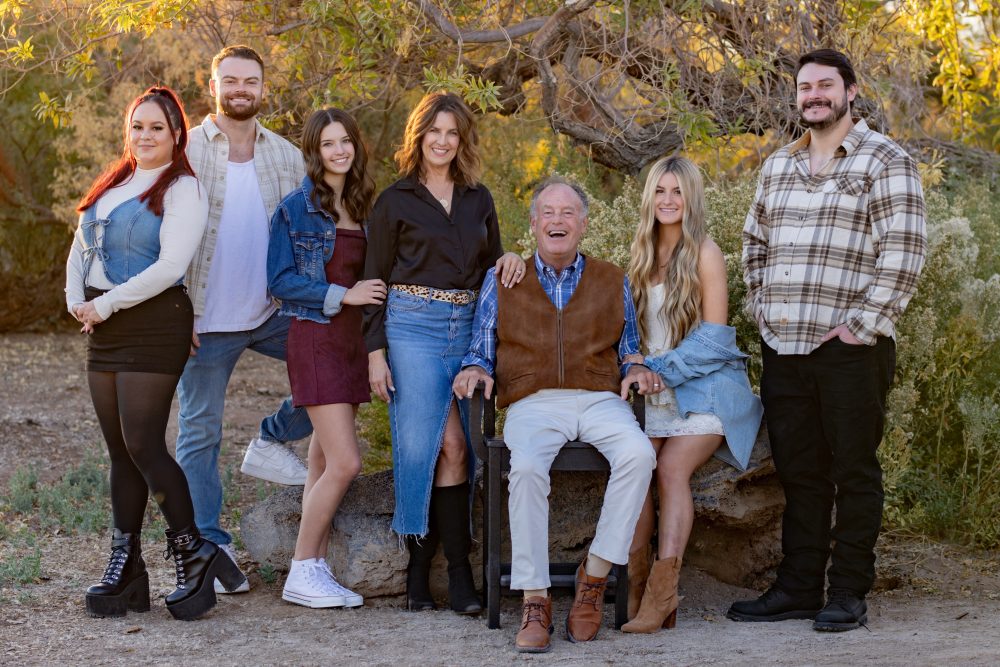
Carrying Eleven: How Tatum Manley Turned Her Father’s ALS Diagnosis Into Her Fight for Awareness
When University of Portland soccer player Tatum Manley thinks back to when her world shifted, she remembers the small tremble in her father’s right hand at the dinner table. It was subtle at first, just a shake as he lifted his fork. When the trembling continued, her parents began searching for answers. For a while, they kept their concerns quiet, hoping to protect their daughters from fear they were not yet ready to carry.
One day, they sat Tatum and her sister down for a serious conversation she still remembers clearly. They told them their father had been diagnosed with ALS. Tatum had never heard of the disease before, and did not yet understand what it meant. But she remembers the silence that followed, and the way the world suddenly felt different. Afterward, she started researching the disease on her own and learned how little is known about ALS, how limited the treatment options are, and how isolating the experience can be for families. She promised herself that she would not let her family face this alone.
The diagnosis changed how she viewed her life, her sport, and her body. As an athlete, every rep, every sprint, and every step on the field gained new meaning. “I never take for granted that I can walk, move, talk. All of that means so much more now,” she says. Her father had been an athlete as well, a college football player in Arizona. Their shared connection through sport became something she carried with her and honored through her jersey number, eleven, which they both wore.
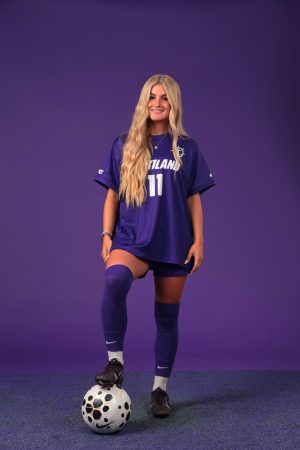
Through all of this, Tatum watches her mother display extraordinary strength. She describes her as an angel, someone who immediately stepped into advocacy with determination and love. Her mother became involved with ALS of Nevada and ALS of San Diego, helping organize events, raise awareness, and has become a trusted resource for others facing similar challenges.
“My mom has done everything she can,” Tatum says. “Her drive to help my dad and raise awareness inspired me to use my own voice.”
Her mother’s passion led Tatum to discover Project ALS. She found the organization while looking for credible research groups and saw what made it different. Project ALS brought urgency, collaboration, and transparency to the fight. It connected scientists, families, and advocates in ways that felt both hopeful and grounded in real work. Tatum saw young people participating. She saw families like hers represented. She saw movement toward answers.
“What I love about Project ALS is that they do not hide from how hard this disease is,” she says. “They are pushing for change, and they are bringing people together to do it.”
At college, Tatum found support through her soccer community as well. One game day, her teammates surprised her by taking the field wearing blue wrist tape with messages across it. Each piece read Team Manley and Beat ALS.
“I cannot even describe how much that meant to me,” she says. “You never know who might see a wristband in a photo or on TV. Something that small can spread awareness.”
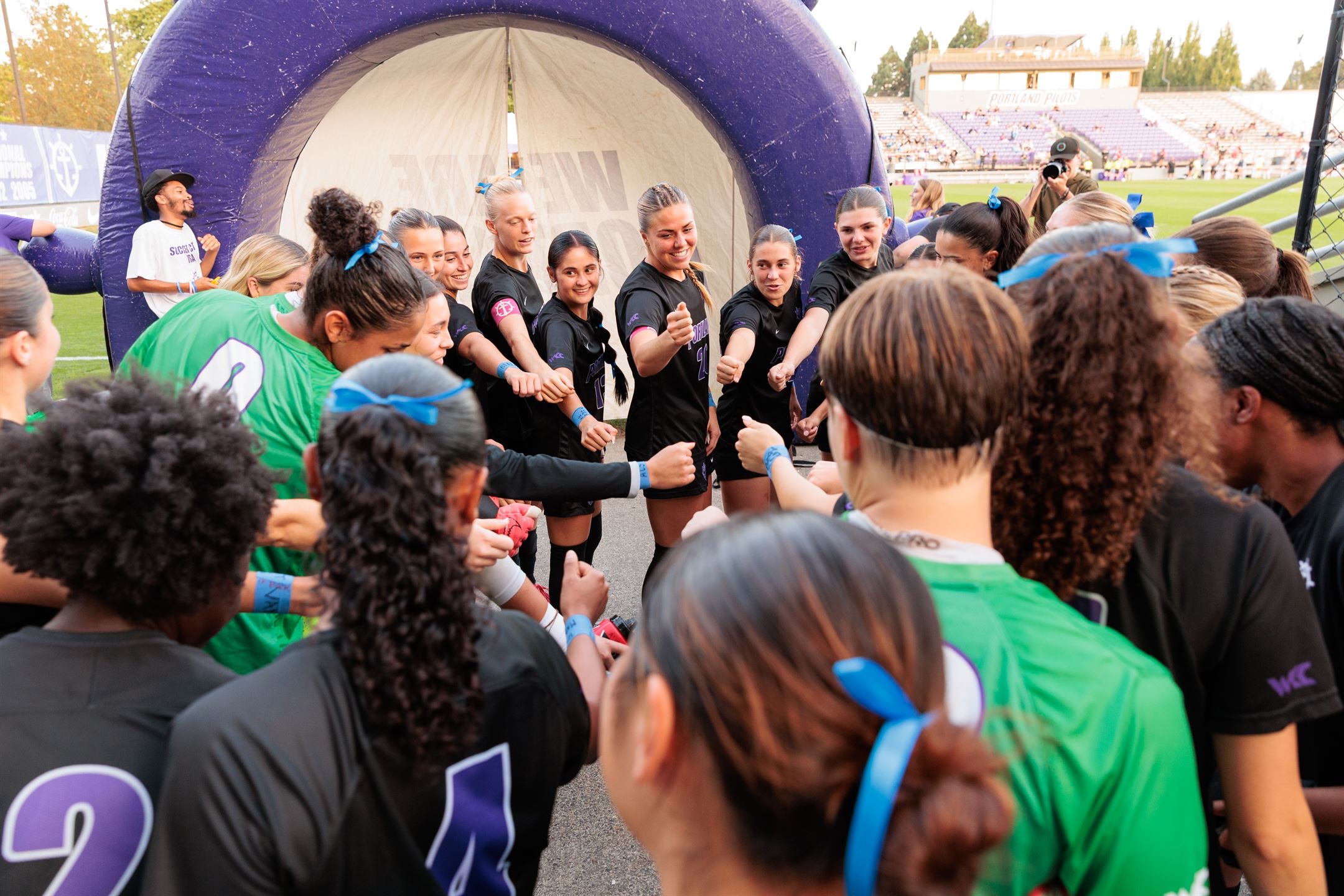
Tatum now uses her platform intentionally. She wears bracelets every day to honor her father. She tells her story on social media. She embraces the significance of her number. She understands that when someone her age speaks about ALS, it can shift how others see the disease. It can help her generation understand that ALS does not only affect older adults. It affects athletes, fathers, healthy people, and families just like hers.
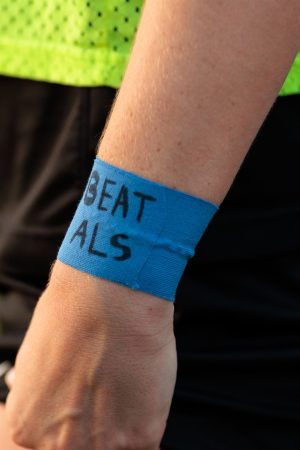 “It is unacceptable that ALS still does not have a cure,” she says. “Lou Gehrig was diagnosed in 1939 and there has been so little progress. My dad is on the two FDA approved drugs, and they only attempt to slow things down. More needs to be done.”
“It is unacceptable that ALS still does not have a cure,” she says. “Lou Gehrig was diagnosed in 1939 and there has been so little progress. My dad is on the two FDA approved drugs, and they only attempt to slow things down. More needs to be done.”
When asked what she would say to another young person facing a loved one’s diagnosis, Tatum pauses thoughtfully before answering.
“I would tell them to hold their people close and know they are not alone. It can feel lonely and hopeless because ALS is not widely understood. But you have family, friends, and communities like Project ALS. There are people who will be there for you. And you have to hold on to the hope that a cure will be found.”
Tatum Manley uses her platform with purpose. She fights loudly because she loves deeply. Her mother’s strength showed her what courage looks like, and Project ALS showed her how that courage can create change. Her story calls on young people everywhere to appreciate the everyday abilities they often overlook and to stand with families facing ALS.
If you are inspired by Tatum’s story, join her. Support the research that offers real hope.
Donate today to help Project ALS move us closer to a cure.

